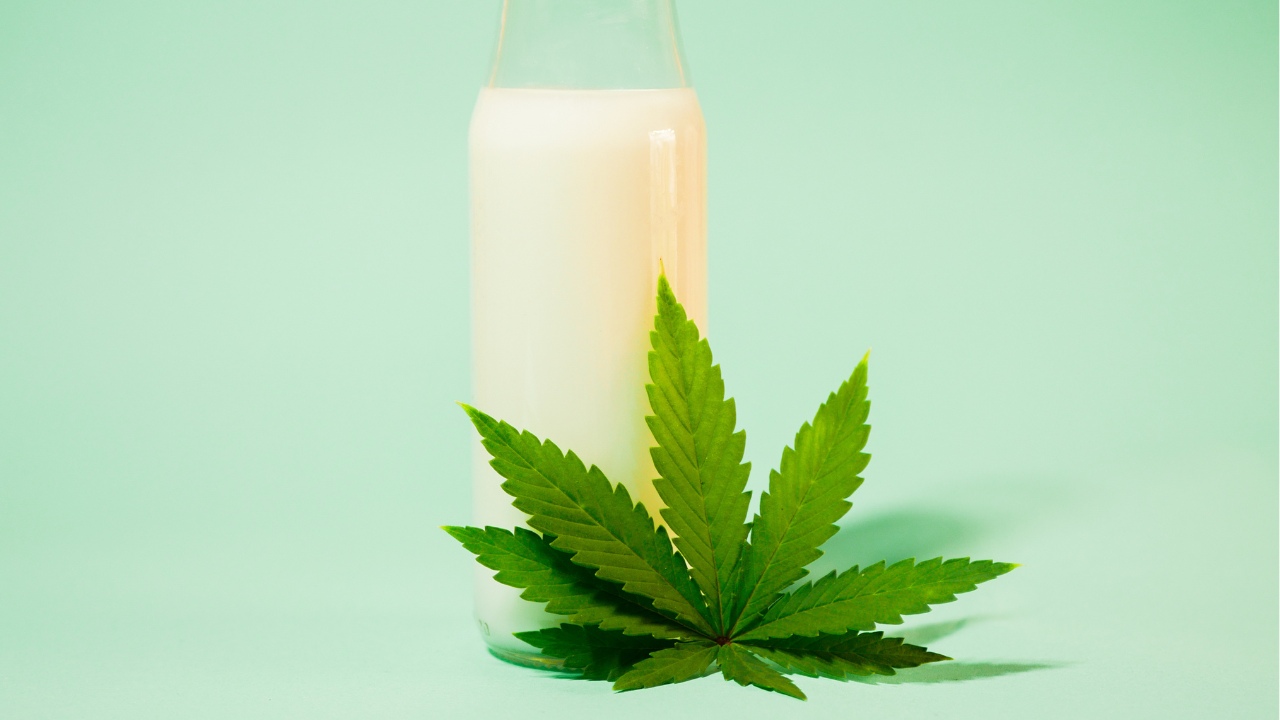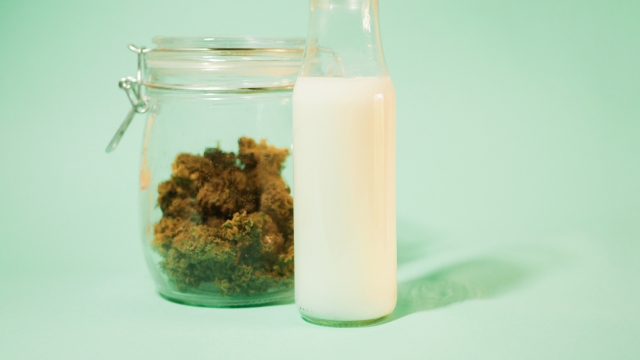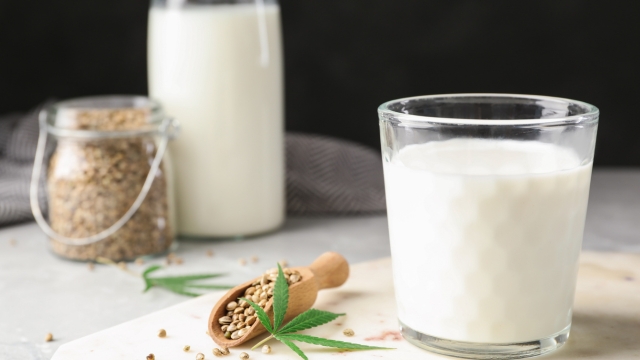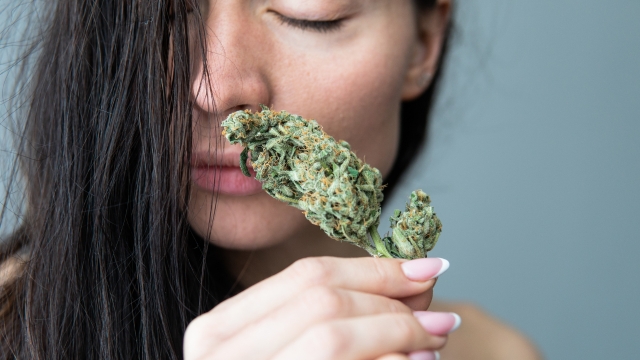In a world where CBD has gained immense popularity for its potential health benefits, lactating mothers face the challenge of understanding its implications for their infants. The presence of CBD can impact the health and development of their little ones, making it essential for mothers to be well-informed on how long does CBD stay in breast milk before deciding to use CBD products.
As for how long CBD stays in breast milk, the timeline is about six days. The method and frequency of use can impact the half-life of CBD on a mother’s body. Though there’s no study establishing the effects of CBD on breastfeeding mothers and their babies, the FDA strongly advises against CBD use.
So, we aim to provide a comprehensive understanding of the topic, guiding nursing mothers through the complex world of CBD and breastfeeding. Hop in.
Key Takeaways
- Nursing mothers should exercise caution when using CBD while breastfeeding, like CBD oil, as its effects on the developing fetus and infants remain largely unknown.
- The CBD presence timeline in breast milk depends upon frequency and dosage of use, with research suggesting a maximum potential presence of 6 days.
- Caution should be taken to ensure product purity and safety by verifying the Certificate of Analysis (COA) and seeking third-party testing. Healthcare consultation is also advised before use.
Introduction – How Long Does CBD Stay in Breast Milk
Breast milk is a vital source of nutrients for infants; however, it can also be a pathway for harmful substances to enter their fragile systems. For instance, Sudden Infant Death Syndrome is associated with newborns exposed to tobacco smoke through breast milk. Given these potential risks, lactating mothers must grasp how long cannabidiol stays in breast milk and the effect of prenatal and postnatal exposure.
Research has shown that THC, the main psychoactive component in cannabis smoke, can be detected in human breast milk for up to six days after cannabis usage. This raises concerns about the potential effects of cannabinoids, like CBD, on developing male fetuses, female babies, and infant development. While some studies have found no observable effects on breastfed infants from occasional maternal marijuana use, the long-term consequences remain largely unknown.
Nonetheless, it’s advised that lactating mothers consult with their physicians before taking CBD oil or other products or engaging in marijuana use, particularly if they’re taking prescription medications during a postpartum period.
Understanding CBD: A Brief Recap
CBD, or cannabidiol, is a non-psychoactive compound found in cannabis and hemp plants, offering potential health benefits without the “high”, unlike THC.
Among various cannabis compounds, CBD derived from hemp is legal in many countries. However, regulations vary, and it’s important to note that the Food and Drug Administration (FDA) strongly advises against using any cannabis product for pregnant and breastfeeding individuals.
With these considerations in mind, we will explore the interaction of CBD, like CBD oil, with the human body and its course in breast milk.
What is CBD?
CBD is a cannabinoid found in the hemp plant. Some strains with high CBD content include Harlequin, ACDC, Cannatonic, and Charlotte’s Web.
In contrast to THC, which binds with the cannabinoid 1 (CB1) receptors in the brain and produces psychoactive effects, CBD does not generate a “high” and interacts differently with the endocannabinoid system.
Due to its potential health benefits, it has become a popular choice among medical marijuana patients.
Legal Status of CBD
Cannabidiol, especially CBD oil, is legally permissible at the federal level in the United States, provided it’s derived from hemp and contains less than 0.3 percent THC. However, its legal status may differ from state to state and country to country.
Therefore, verifying the specific laws of your state or country concerning the legality of CBD is crucial, as an unauthorized sale or possession of cannabis or hemp-based products, tobacco smoke, and cannabis use could lead to criminal penalties.
CBD and The Human Body
CBD interacts with the endocannabinoid system in the human body, influencing various physiological processes. However, dosage, frequency of use, and individual metabolism can affect how it’s absorbed and metabolized.
To comprehend how these factors influence CBD’s presence in breast milk from cannabis use, we’ll explore its interaction with the body and the elements that shape its absorption and metabolism.
How CBD Interacts with the Body
CBD affects the body by inhibiting endocannabinoid signaling. This is likely achieved by binding to CB1 receptors’ allosteric site and altering the potency of other primary ligands, such as endocannabinoids and THC. Moreover, it can also elevate the levels of endogenous cannabinoid compounds, anandamide and 2AG, which activate cannabinoid receptors.
However, the interaction of cannabidiol, like CBD oil, with the body varies among individuals due to factors such as metabolism, genetics, overall health, and other medications or substances present.
Factors Affecting CBD Absorption and Metabolism
The dosage of CBD oil or other products, even medical cannabis, can influence its metabolism within the body. In particular, a higher maternal dose can potentially interfere with hepatic drug metabolism, leading to drug interactions. Additionally, the frequency of use is another factor to consider.
Furthermore, individual metabolism plays a significant role in CBD metabolism, as it undergoes extensive processing in the body, especially in the liver.
Moreover, genetics, age, and overall health can also impact CBD metabolism.
CBD Use in Nursing Mothers: What We Know
The use of CBD while breastfeeding by many women is a complex topic with limited research available. However, there’s a potential risk associated with taking CBD oil while breastfeeding due to the lack of scientific data on the interactions between cannabinoids and the possible effects on infants, like low birth weight, ear infections, and even sudden infant death syndrome.
Research on CBD and Breastfeeding
No studies have yet established the impacts of CBD oil and other products on breastfeeding mothers and their offspring, including the effects of varying cannabinoid concentrations in breast milk. Consequently, the FDA strongly discourages the use of CBD during breastfeeding due to the potential risk of infant adverse reactions.
Potential Effects on Infants
Some studies suggest that marijuana use during pregnancy and CBD exposure through breast milk may negatively impact infant development and growth, including potential effects on nervous system development, and may cause birth defects. For instance, CBD oil may interfere with cognitive processes and reduce problem-solving behaviors in infants. However, the long-term effects of cannabis use during pregnancy and breastfeeding remain largely unknown.
Unveiling the Science: CBD’s Journey in Breast Milk
To understand the course of CBD oil and other products in breast milk, it’s necessary to know how substances are transferred, and the specific route CBD follows. Importantly, the transfer happens primarily through diffusion, with factors such as protein binding, lipid solubility, and ionization affecting the process.
How Substances Transfer to Breast Milk
Substances transfer to the mother’s milk production primarily through passive diffusion, passing from the maternal plasma compartment through the capillary walls into the milk. In some cases, substances may be transported through secretory methods or reverse pinocytosis.
Most drugs transfer into breast milk to some extent, although the amount is generally too small to have pharmacological effects on the infant. Consequently, considering the potential risks of marijuana use during pregnancy, including CBD, is important.
CBD’s Specific Pathway
CBD’s fat-soluble nature allows it to accumulate in body fat cells and be stored in the body for extended durations. Consequently, since breast milk contains 3 to 5% fat, it can contain fat-soluble compounds like CBD. This, in turn, makes studying the transfer and effects of this cannabinoid during pregnancy and while breastfeeding is a challenging task.
Nonetheless, it has been observed that CBD in CBD oil or other products can enter into breast milk. However, the detectable CBD amount is in small quantities only.
The Timeline: CBD Presence in Breast Milk
The duration of CBD presence in fat cells and breast milk depends on factors such as usage frequency and dosage. Specifically, research indicates that CBD can be detected in breast milk for up to 6 days after use.
Understanding the decay rate of CBD and the implications of short-term versus long-term use can provide valuable insight into its presence in milk samples and the potential neonatal and childhood outcomes.
Short-term vs. Long-term Use
Whether CBD oil or other products are used in the short-term or long-term can impact its presence in breast milk. Research has shown that short-term exposure during breastfeeding might lead to cognitive, social, and motor impairments in infants, some of which may persist for years. On the other hand, the long-term effects are not well understood.
Understanding the Half-Life of CBD
CBD’s half-life varies depending on the method of consumption and individual factors. For instance, it has been reported that in the human body, it can range from 2 to 5 days for long-term oral use and 31 hours for smoking CBD. Moreover, the intake method and individual factors such as genetics, age, and overall health can also impact the decay rate.
Safeguarding Infant Health: Considerations for Nursing Mothers
The potential risks to infant health and development are not yet fully understood, so nursing women contemplating using CBD oil and other products must exercise caution. Consequently, ensuring the purity and quality of CBD products and seeking professional medical advice are some measures that can help safeguard the well-being of both the mother and the baby.
When Caution is Paramount: CBD Products and Purity
Pregnant or breastfeeding mothers should be cautious about the purity and quality of CBD products, like CBD oil, as contaminants can pose risks to infants. Specifically, some common contaminants found in low-grade CBD products are the same harmful components as low-quality weed, which include THC, pesticides, synthetic cannabinoids, chemical solvents, heavy metals, and other contaminants.
To ensure the safety of their infants, nursing mothers need to choose high-quality cannabis products like topical CBD products that have been tested for purity and safety when breastfeeding. Therefore, nursing women should assess the Certificate of Analysis (COA), confirm CBD and THC concentrations on the COA and product label, and seek out third-party testing.
Professional Medical Advice and Monitoring
For many women who are nursing and considering using CBD oil, consultation with healthcare professionals is paramount. Additionally, vigilant monitoring of infant health is essential.
Hence, healthcare professionals should be attentive to key indicators in infants exposed to CBD. These indicators may include neonatal and childhood outcomes, overall health, development, alterations in feeding patterns, and signs of respiratory distress.
Furthermore, they need to closely scrutinize infants with prenatal cannabis exposure, as well as postnatal exposure to CBD. They can easily do this by subjecting the mothers to various tests using milk samples since CBD stays in the system for days. As professionals in the field, Discussing the risks and benefits of cannabis use during pregnancy and breastfeeding with the mother is important.
Also read: How to Make CBD Oil at Home: A Comprehensive Guide
The Road Ahead: Future Research and Implications
The need for more research on the impact of CBD on milk production is evident, as it will help inform guidelines and recommendations for nursing mothers.
Future research may provide more insight into the safety and effects of breast milk samples, as well as address the ethical challenges involved in such studies.
Ethical Dilemmas in CBD Research
Conducting research on CBD usage during breastfeeding presents ethical challenges, as it involves exposing infants to potential risks. Therefore, some ethical considerations include protecting the participants, obtaining informed consent, ensuring confidentiality and privacy, avoiding harm, and maintaining impartiality and objectivity.
Anticipated Studies and What They Promise
Future research may include characterizing cannabinoid distribution in human milk and investigating long-term effects on infant growth and development. In addition, conducting controlled clinical trials of milk samples to compare outcomes of exposed and non-exposed infants is essential.
Furthermore, exploring the dose-response relationship between CBD exposure and infant effects is crucial. Lastly, investigating the pharmacokinetics of CBD in mother’s milk is also a significant aspect of this research.
These studies have the potential to provide valuable insights that can help lactating mothers make informed decisions about the use of cannabis-derived products like CBD oil while breastfeeding.
Final Thoughts
Lactating mothers contemplating CBD should exercise caution, as the potential risks to infant health and mental development are not entirely understood. Ensuring the purity and quality of cannabis products, consulting with healthcare professionals, and closely monitoring infant health are essential steps for safeguarding the well-being of mother and baby.
Also read: Unlocking the Clock: How Long Does CBD Stay In Your System?
Related Questions
Still have questions? Check out a couple of common ones below.
How long should I wait to breastfeed after smoking?
Wait at least 90 minutes after smoking cannabis CBD before breastfeeding. You should also avoid substance use and smoking or vaping CBD while breastfeeding in the house or car. Remember that CBD and marijuana use, like tobacco smoke, may lead to sudden infant death syndrome, ear infections, negative postnatal growth, and more due to harmful chemicals.
Is it safe for breastfeeding mothers to detox fast from CBD?
Fast detox from CBD and marijuana use is not advisable for breastfeeding women due to potential withdrawal symptoms and potential effects on human breast milk. It’s best to consult a healthcare professional if there’s an attempt to stop cannabis use, especially when dealing with postpartum depression.








